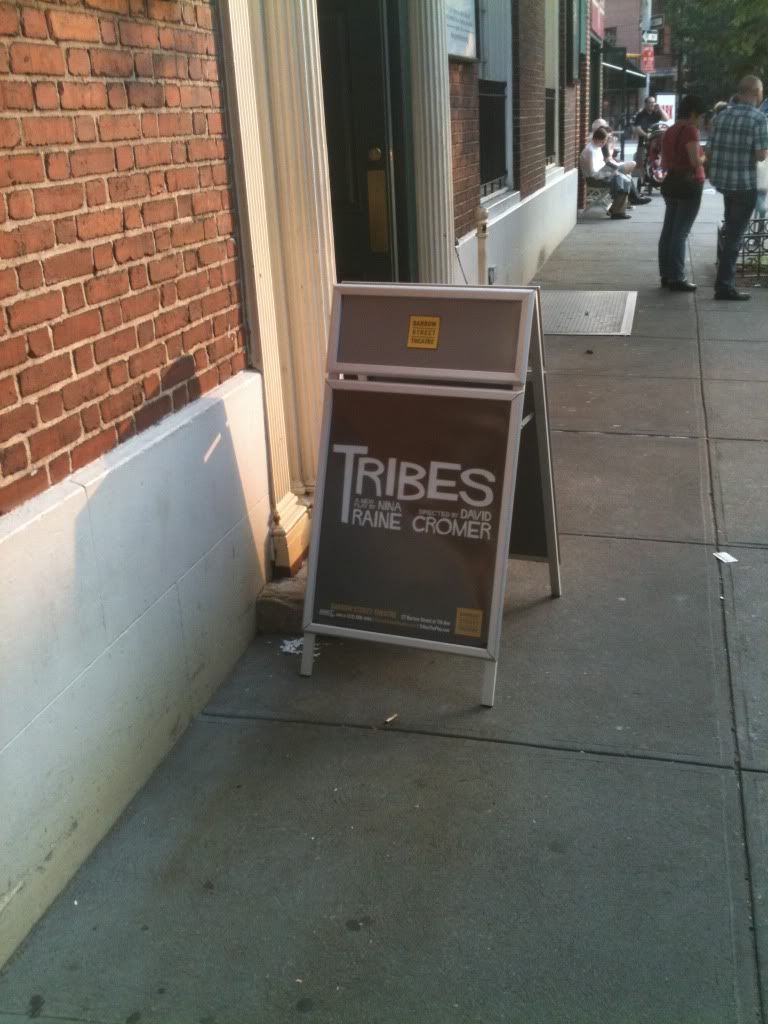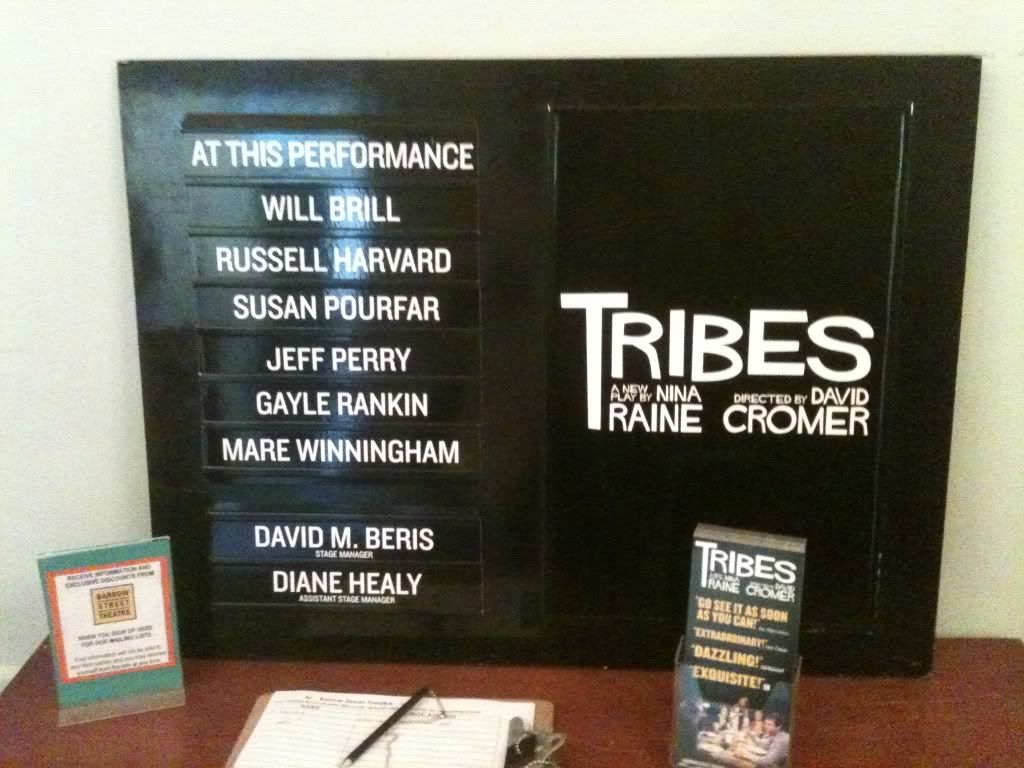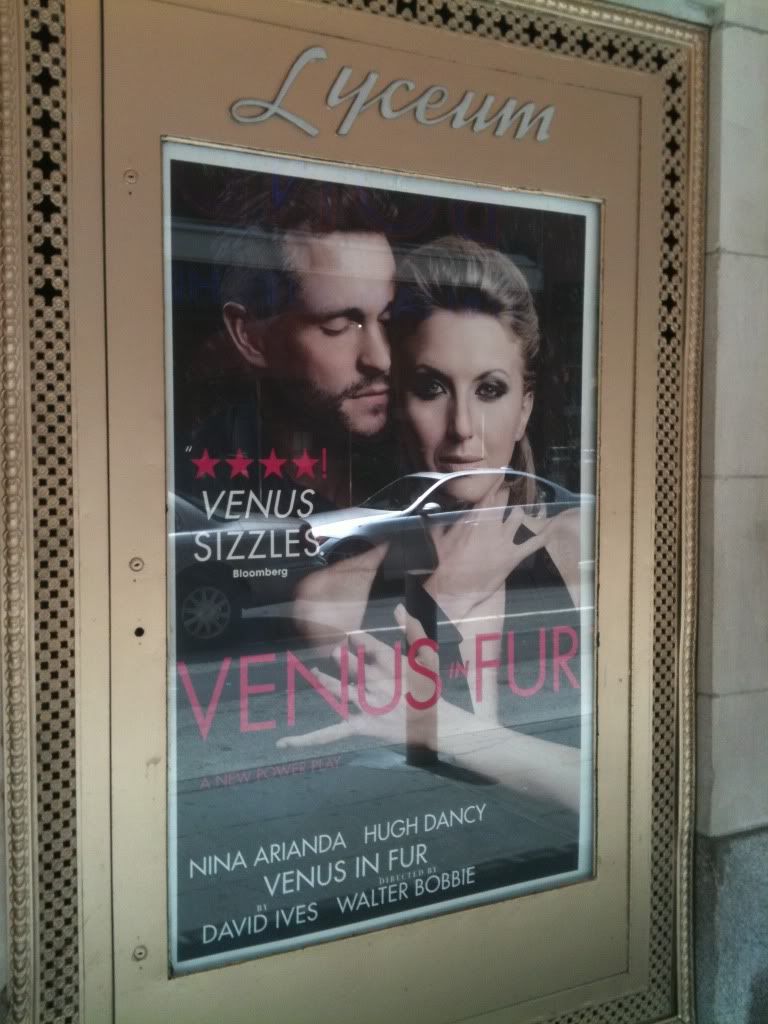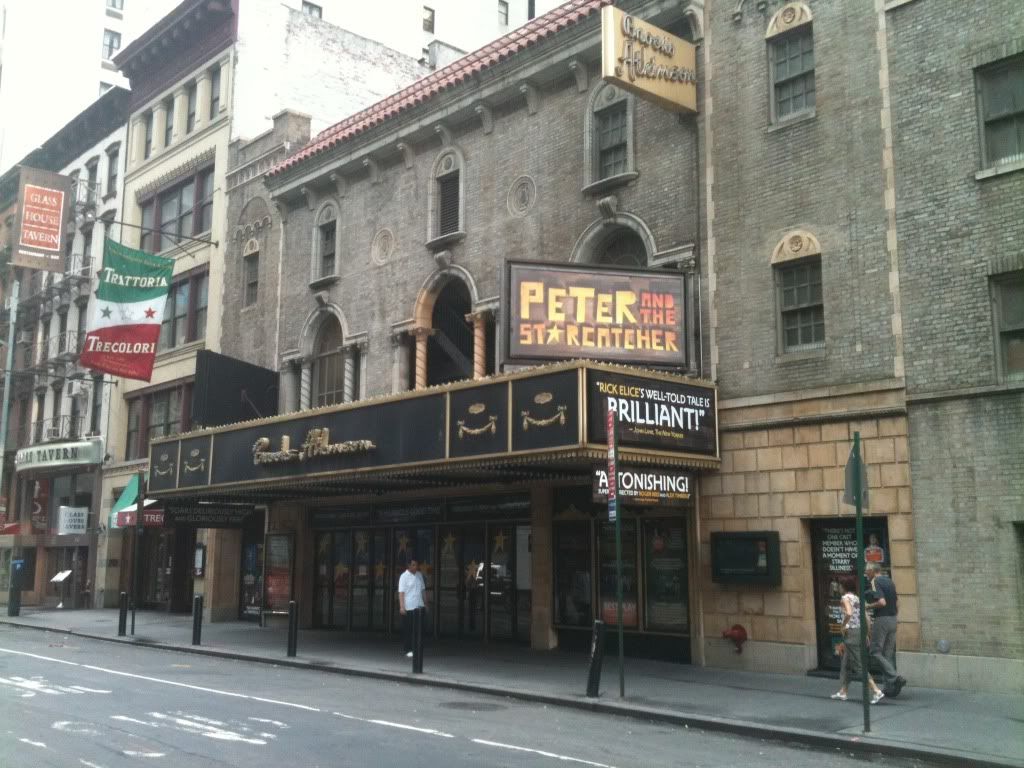Although
it’s been sort of on my mind for some time now, I was inspired to further
explore this recently. I’ve even been
audacious enough to act on it. The
topic? Standing ovations. I was moved by Ben Brantley’s recent article for the New York Times on the matter.
While I don’t necessarily agree with everything he says (I think I liked
Newsies way more than he did), I
think he makes an excellent point.
Standing ovations have become an epidemic in the theater, and it’s not a
good thing. The ridiculous prevalence of
the standing ovation has stripped it of its merit. It hardly means anything anymore to give or
receive a standing ovation. I’m trying
to see if we can do something about that – starting with me.
I don’t see as many Broadway shows
as I’d like (face it: I’d like to see
them all), but I’d say I see significantly more on Broadway than the average
American. Also, because of work I do
here, I see almost every show done in the Triangle on the local and regional
level, as well as all the big national tours.
And I see a lot of standing
ovations.
One
incident which really sticks out in my mind is when I saw Clybourne Park on Broadway.
I enjoyed the show, but it wasn’t my favorite. I was all set to politely applaud, give a “whoop”
for the actor I really liked, and be on my way.
However, I was sitting practically among a large group of high school
students from southern Florida – all musical theater kids. The very second that the curtain call
started, every last one of them was on their feet, even the guy who fell asleep
during act 1. They gave a standing
ovation like that’s what they thought they were supposed to do. Maybe that is, actually, what they thought
they were supposed to do. But, really,
was the kid who fell asleep for several pivotal scenes really moved that much by the production? Probably not.
Maybe
that incident has a lot to do with what Ben Brantley was saying about
out-of-town crowds versus New York crowds.
I get what he’s saying, but I think for the purposes of the rest of
America, that can probably be expanded to people who see live theater every
once and a while versus those who make a regular habit of it. I don’t want it to seem like I’m looking down
on the once-in-a-whilers; every theater patron is a wonderful asset to the
community. But there’s a
difference. Like people who go to every
home baseball game of a season are, in many ways, different sorts of fans than
those who go to one or two.
I had
been, up until now, one of those people at the theater who remained in my seat,
eventually looked around at everyone standing, and begrudgingly stood, mostly
so I could see the end of the curtain call.
But now, I’m taking a stand.
Well, actually, I’m taking a seat.
I’m the kind of girl who likes to go with the flow, so it’s been an
interesting experience so far.
I went
to see the national tour of West Side
Story on official business. I
brought a friend who hasn’t seen much live theater lately. She agreed with me that the standing ovation
was silly. We sat. We were the only ones, but it actually didn’t
feel awkward. I think I made my
point. I applauded and even cheered,
because the production was good. But, if
anyone asks, I’m saving my standing ovation for the top 1%. That’s what I’ve decided.
I went
to a local theater production of Cat on a
Hot Tin Roof, also on official business.
Everyone stood. I was gracious,
polite, and seated. Same goes for a
regional production of Boeing Boeing
I saw this week to review. I loved the
show. So did everyone else there. They stood.
I applauded from my seat.
So far,
there hasn’t been any fallout. No one
has approached me to ask me why I didn’t stand or why I didn’t like the
performance. I haven’t had to explain to
anyone that I’m saving it for the top 1%.
When the curtain call is over, we all just go on with our lives. Additionally, many of the shows I see are in
a professional capacity. I receive a comp
ticket to review the show (in case you’re wondering, I review those shows
elsewhere – this blog is reserved for shows I see in my free time). Would it be professional for me to
stand? I don’t know. I’m not quite sure where the line is.
So, for
now, I’m sitting. I encourage you to
join me in my sit-ins, if you will. Let’s
all, as a whole, give a standing ovation back
its weight so that it truly means
something to receive one. Thoughts?




